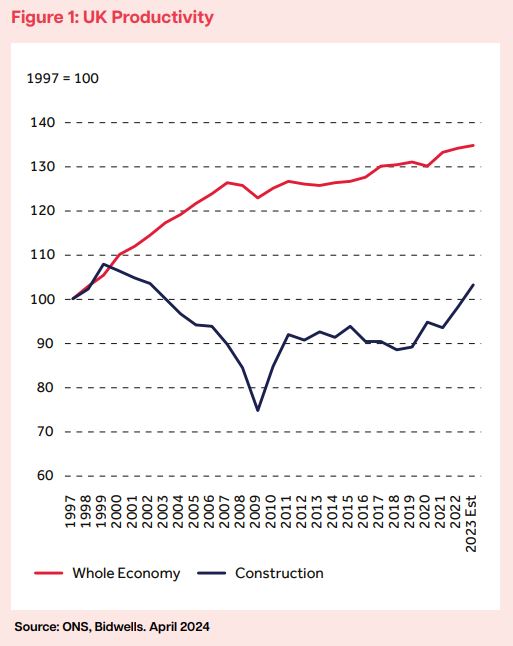The relatively low productivity of UK construction is due to three factors. First, a lot of buildings are one-off designs, particularly in the non-residential sector, so the knowledge gained from one project does not necessarily apply to the next project in the way that it does in manufacturing or services where products are standardized. There is also the drawback that, unlike a car, buildings do not come with a log book or a service history. That adds significantly to the risks with redevelopment and refurbishment projects because problems (e.g., asbestos, concrete corrosion, utilities) often only become apparent once work has started.
Second, private sector investment can be very cyclical depending on the state of the economy, and while, in theory, government investment should be more stable, in reality, it is prone to short-term changes as political priorities blow with the wind. As a result, contractors have historically tended to adopt a siege mentality, conserving their cash by limiting headcount and minimizing expenditure on training, equipment, and R&D. That means that the industry is highly fragmented, with numerous subcontractors and high levels of self-employment; that late payments are an endemic problem and that the insolvency of one contractor can have a domino effect, triggering the failure of other businesses; and that construction is prone to skills shortages and materials delays when demand increases.
These structural weaknesses are exacerbated by the practice of awarding contracts to the lowest bidder. Although that makes sense for clients financially in the short term, the uncertainty over whether there will be repeat business means that clients and contractors often keep each other at arm’s length, and it prevents the open-book approach to costs and knowledge sharing, which is common in parts of manufacturing. It also means that main contractors are sometimes working on very thin margins, so the pressure on costs gets transmitted through the supply chain, and if problems do arise, then parties are more likely to resort to litigation rather than assume that a loss on one project will be made good on the next. In short, the industry suffers from a lack of goodwill.
























